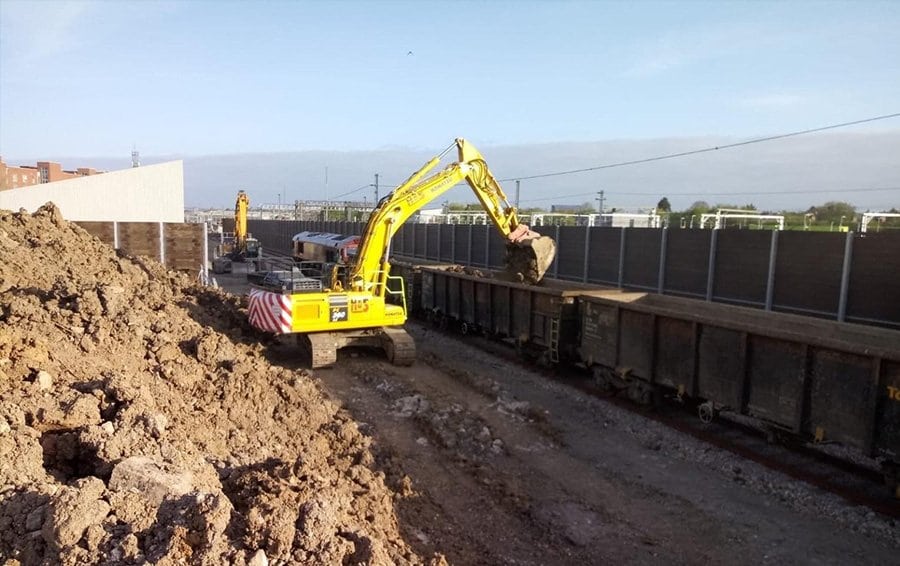FCC Environment, one of the UK’s leading recycling and waste management companies, is celebrating a successful first year operating from DB Cargo UK’s rail freight terminal for construction spoil at Cricklewood, North West London.
The strategically located site enables FCC Environment to serve both the West and North London construction markets, which have seen an expansion in projects in recent years – including some of the country’s largest development schemes.
Over the past year, the Cricklewood site has received some 250,000 tonnes of construction soil, mainly from projects such as HS2 and the redevelopment of Euston station, but also from new housing developments in the area.
Commenting on the site’s operational anniversary, FCC Environment’s General Manager, Roland Williams said: “The past year has been a year like no other, and we have encountered many challenges along the way. We had to close the site twice owing to the pandemic – however, with thorough planning and resilience from our team, we have met client demand for the service, whilst taking in a quarter of a million tonnes of soil from projects across North and West London.”
DB Cargo UK’s Head of Sales Roger Neary said: “Aggregate and waste terminals like the one we operate at Cricklewood play an important role in the capital’s construction market, taking an estimated 1,000 lorry journeys off the capital’s congested road network every working day.”
Cricklewood is FCC Environment’s third strategic soils hub in the Capital that it operates with its principal rail partner, DB Cargo UK. The three sites handle and remove between 750,000 to 1 million tonnes of construction waste and soils each year for recovery/ reuse at FCC Environment’s Calvert facility.
The facility at Cricklewood also stocks supplies of aggregates on site, allowing clients to ‘backload’ when dropping spoil at the site, helping to reduce the number of journeys made by HGVs through London and cutting their carbon footprint.






